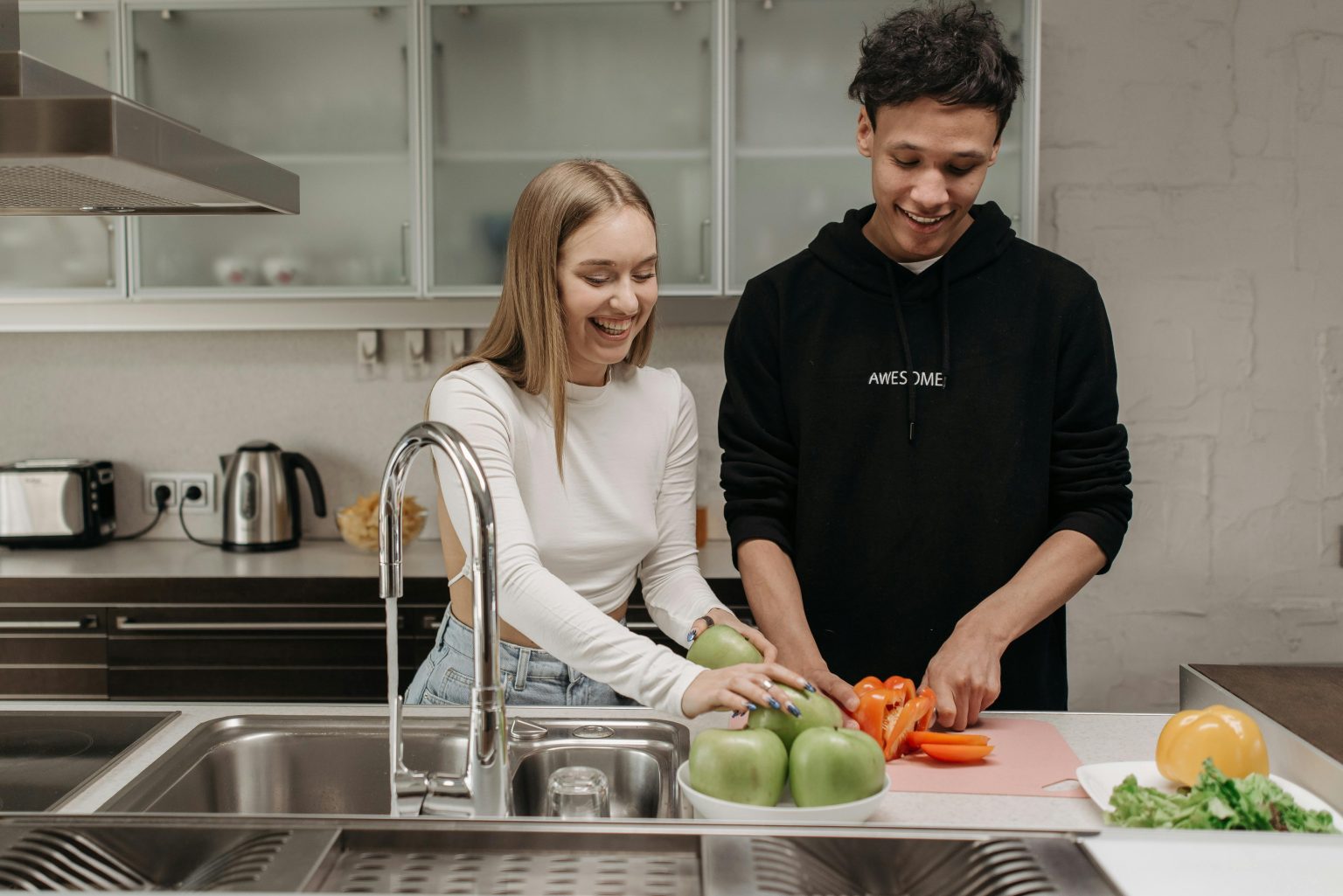- New data reveals that a quarter of those living in houseshares never cook their meals together.
- Despite the savings that can be made, psychologist shares expert insight into why you should cook with your housemates and the true impact of houseshares on human interaction.
- Lack of time, lack of kitchen space, different schedules (e.g. different working patterns), as well as simply the preference to cook alone, are among the top reasons people are not cooking together.
- Food expert shares four simple tips on making cooking together easy and how using your housemates’ cooking skills can actually save you time and money.
The cost of everyday necessities continues to climb, as wages in the UK remain stagnant, seeing the demand for houseshares on the rise.
While houseshares can be a great option for saving money, new research delves into why housemates should be cooking together, and the true impact of housesharing on individuals and human interaction.
The research highlights that a staggering quarter of all those living in houseshares, never cook their meals together. Of those who do cook together, the average for those living in houseshares was 3.2 days per week.
This figure is higher than average in certain parts of the country, such as Sheffield (3.3 days); Nottingham (3.3 days); London (3.5 days); Bristol (3.5 days); Edinburgh (3.5 days). However, the figure is much lower than average, in cities such as Norwich (2.4 days), Liverpool (2.7 days) and Newcastle (2.8 days).
Reasons for not cooking together predominantly included a lack of time, with over a quarter of housesharers (26%) admitting they simply do not have the time to cook with their housemates. Other reasons included a lack of kitchen space, different schedules (e.g. different working patterns), disability or ill health, a lack of interest and a ‘general hatred for cooking’, as well as simply the preference to cook alone.
Psychologist, Georgina Sturmer, commented on the importance of cooking together:
“There’s something so intrinsically human about sitting down and sharing a meal with the people who we live with. Mealtimes offer us an escape from the stress and distraction of our everyday lives. An opportunity to share a sensory experience, to look each other in the eye, to chat and to connect.
“When we eat together, we feel more connected and bonded. And when we strengthen our human connections it can help us to feel more grounded and resilient, and less stressed. When eating becomes a social occasion, we often eat more slowly and more mindfully.”
The brains behind the new research, food box delivery service, HelloFresh, are on a mission to get the UK back into cooking, regardless of individuals’ living situation or culinary ability.
HelloFresh’s Senior Recipe Development Manager, Mimi Morley, shares her top tips for cooking together when living in a houseshare, and how it can actually save you time and money.
- Plan ahead to cut down on waste and save money
Coordinating your meal schedules with your housemates will avoid overlap, so even if you do choose to cook different meals, you can share surplus ingredients which may have otherwise gone to waste. This will cost you both less in the long run too! - Plan a weekly cooking rota
Assigning each housemate different days of the week to cook allows for efficient ingredient use and streamlined meal planning. This shared responsibility optimises your kitchen resources, reduces food waste and saves time and money on individual supermarket runs and meal preparation. While one is cooking, the others can learn from the different cooking techniques implemented, and strengthen the communal bond.
- Divide tasks when cooking together
Assign roles during meal prep to capitalise on each person’s strengths and save time. For instance, one person can chop vegetables while another handles cooking, and another clears up, creating a smooth workflow with joint involvement. This is perfect for those who hate to cook, when perhaps other housemates love it.
- Embrace diversity in your houseshare
Every individual you live with will have a very different historical relationship with food – whether they’ve learnt different cooking styles from their families or have travelled to different countries and picked up a taste for different cuisines. Embracing different culinary backgrounds and preferences fosters creativity and makes cooking an enjoyable communal experience.
For more dinner recipe ideas you can cook together, head to hellofresh.co.uk.



